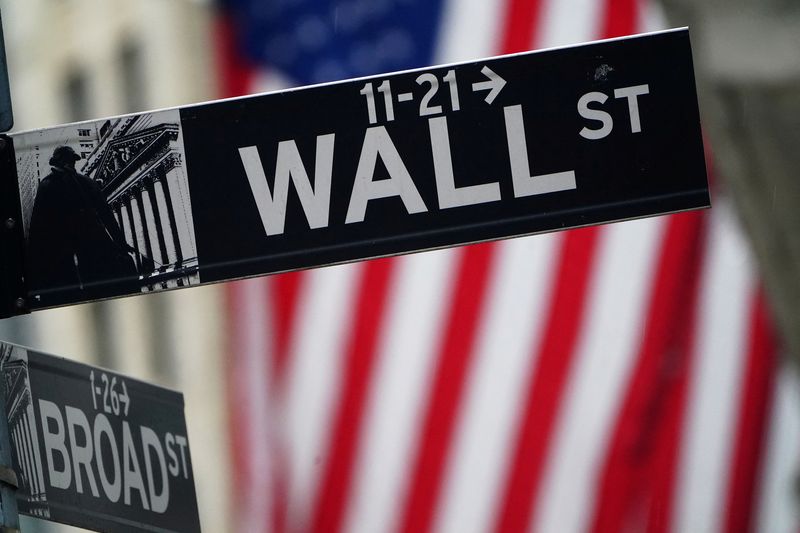By Echo Wang
(Reuters) -The S&P 500 and Nasdaq closed marginally lower on Friday, weighed down by a decline in Nvidia shares for a second straight day, which dragged down the technology sector.
Technology was the biggest loser among the 11 major S&P 500 sectors, down 0.84%, weighed by Nvidia, while communication services led the gain.
“It's Nvidia's game, and the rest of us are just pretending to be here,” said Michael Green, chief strategist at Simplify Asset Management in Philadelphia.
"Basically all the activity is now concentrated in Nvidia call options," he added. "Seven million option contracts Nvidia have traded. That's something in the neighborhood of three or four times the quantity of contract volume that would have traded for the market in total five years ago."
The Dow Jones Industrial Average rose 15.57 points, or 0.04%, to 39,150.33, the S&P 500 lost 8.55 points, or 0.16%, to 5,464.62 and the Nasdaq Composite lost 32.23 points, or 0.18%, to 17,689.36.
Shares of megacaps Microsoft (NASDAQ:MSFT), Alphabet (NASDAQ:GOOGL), Amazon.com (NASDAQ:AMZN) rose between 0.92% to 1.89%. Apple (NASDAQ:AAPL) slipped 1.04%.
“We've had a very strong run, especially in the S&P over the last couple weeks. So not surprised to see things kind of take a pause and settle down,” Zachary Hill, head of portfolio management at Horizon Investments in Charlotte, North Carolina.
Friday's trading could be more volatile than usual due to triple witching, the simultaneous expiration of stock options, stock index options, and stock index futures.
U.S. business activity reached a 26-month high in June amid a rebound in employment, while easing price pressures suggested the recent inflation slowdown may continue.
Flash services PMI increased to 55.1 this month, above expectations of 53.7, while manufacturing PMI edged up to 51.7, compared with expectations of a dip to 51.
May home sales fell to a seasonally adjusted annual rate of 4.11 million units versus expectations of 4.10 million units.
Money markets are still pricing in a 58% chance of a 25-basis point rate cut in September, and still expect about two rate cuts this year, according to LSEG's FedWatch data.
AI chip firm Nvidia dropped 3.22%, while semiconductor stocks Qualcomm (NASDAQ:QCOM), Broadcom (NASDAQ:AVGO) and Micron Technology (NASDAQ:MU) were down between 1.36% and 4.38%.
Wall Street's bumper gains since the final leg of 2023 have been primarily driven by the likes of Nvidia and a handful of other heavily weighted stocks linked to artificial intelligence. Analysts, however, have raised concerns whether the strong increase in their valuations is sustainable.
Shares of Spirit AeroSystems rose 6.00% following a Reuters report that Boeing (NYSE:BA) is nearing a deal to buy back the airplane parts supplier after months of talks.
Sarepta Therapeutics soared 30.14% after the U.S. FDA allowed expanded use of the company's gene therapy for patients with Duchenne muscular dystrophy aged four and older.
Declining issues outnumbered advancers by a 1.03-to-1 ratio on the NYSE. There were 98 new highs and 73 new lows on the NYSE.

The S&P 500 posted 23 new 52-week highs and 2 new lows while the Nasdaq Composite recorded 34 new highs and 186 new lows.
Volume on U.S. exchanges was 17.68 billion shares, compared with the 12.05 billion average for the full session over the last 20 trading days.